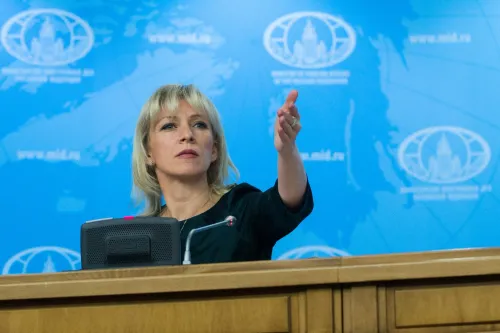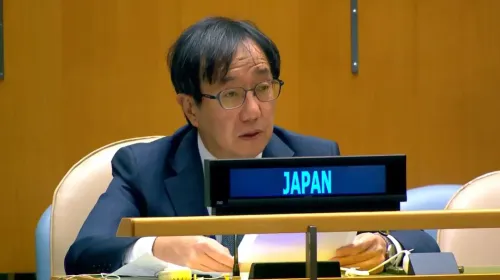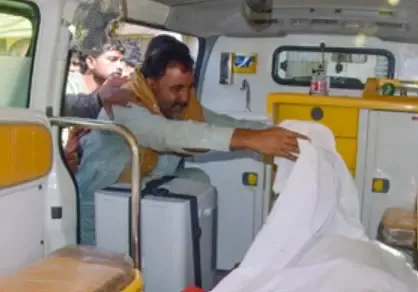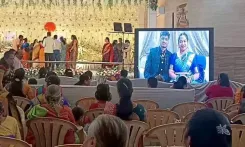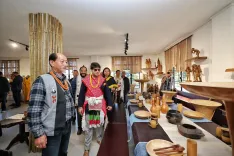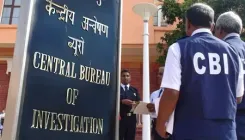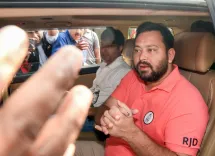What Does PM Modi's First Official Visit to Namibia Entail?
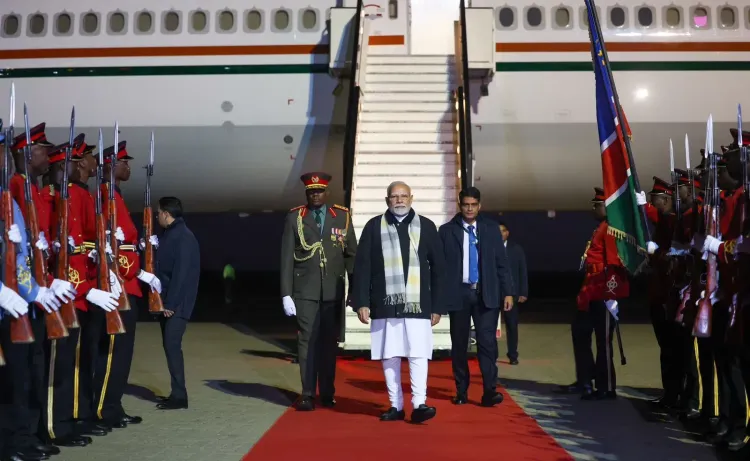
Synopsis
Key Takeaways
- PM Modi's visit marks a significant diplomatic milestone.
- Strengthening ties in energy and healthcare is a priority.
- Historical support for Namibia's independence underscores the relationship.
- Joint initiatives in education and tech are vital for future collaboration.
- Namibia is a key African partner for India.
Windhoek, July 9 (NationPress) Prime Minister Narendra Modi has touched down in Windhoek, the capital of Namibia, on Wednesday, signifying his inaugural official visit to this southern African country.
Upon his arrival, he was welcomed at the airport by Ms. Selma Ashipala-Musavyi, Namibia’s Minister of International Relations and Cooperation. This visit highlights India’s dedication to strengthening its enduring and amicable relations with Namibia.
After landing, PM Modi shared on X, "Just arrived in Windhoek. Namibia is a key and reliable African partner, and I aim to enhance our bilateral collaboration. Excited to meet President Dr. Netumbo Nandi-Ndaitwah and address the Namibian Parliament today."
During his stay, Prime Minister Modi will engage in discussions with President Netumbo Ndemupelila Nandi-Ndaitwah and will also deliver a speech at a Joint Session of the Namibian Parliament.
The two leaders are anticipated to cover a broad array of bilateral topics, with a particular emphasis on enhancing cooperation in sectors such as energy, healthcare, digital infrastructure, education, and capacity building.
An official announcement has emphasized the profound historical connections between the two countries, which date back to Namibia's fight for independence. India was among the early advocates for Namibian independence at the United Nations in 1946 and supported SWAPO, the liberation group that ultimately secured Namibia's freedom. In 1986, the first SWAPO embassy was established in New Delhi.
India also played a crucial role during Namibia’s path to independence, with Lt. Gen. Dewan Prem Chand of the Indian Army commanding the UN peacekeeping force (UNTAG) that facilitated the electoral process in 1989–90. Following independence, diplomatic relations were formalized, with India inaugurating its High Commission in Windhoek in 1990, and Namibia establishing its Mission in New Delhi in 1994.
India’s developmental partnership with Namibia encompasses significant humanitarian and infrastructural support, such as donations of COVID-19 vaccines, food assistance during droughts, and aid in establishing educational and healthcare facilities. The India-Namibia Centre of Excellence in IT at NUST and the India Wing at the University of Namibia’s Ongwediwa campus are testaments to this lasting collaboration.


